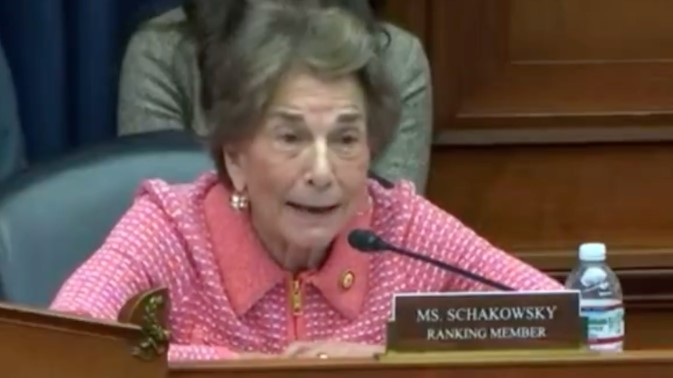Christian school worker wins landmark free speech case after being fired for social media posts
02/18/2025 / By Cassie B.

- Kristie Higgs, a Christian school administrator, won her six-year legal battle against dismissal for sharing concerns about LGBT-inclusive education on Facebook.
- The Court of Appeal ruled her dismissal was disproportionate, setting a precedent for freedom of belief in the workplace.
- Higgs’ case highlights the tension between personal expression on social media and workplace policies.
- Despite the posts being unrelated to her job and under her maiden name, the school claimed her views could damage its reputation.
- The ruling emphasizes that lawful, albeit controversial, speech outside the workplace should not be grounds for dismissal.
In a landmark victory for free speech and religious freedom, Kristie Higgs, a 49-year-old Christian school administrator, has won her six-year legal battle against Farmor’s School in Gloucestershire, England.
Higgs was dismissed in 2019 after sharing Facebook posts expressing her concerns about LGBT-inclusive education in primary schools. The Court of Appeal ruled unanimously that her firing was “unquestionably a disproportionate response,” setting a crucial precedent for protecting freedom of belief in the workplace.
The case, which has drawn national attention, highlights the growing tension between personal expression and workplace policies in an era where social media blurs the lines between private and professional life. Higgs, a mother of two, never identified herself as a school employee on her personal Facebook account, which she used under her maiden name. Yet, her employer claimed her posts—shared with about 100 friends—could harm the school’s reputation.
A battle over beliefs
The controversy began in October 2018 when Higgs shared two posts on her personal Facebook page. One encouraged others to sign a petition opposing government plans to introduce Relationships and Sex Education in primary schools, while the other highlighted concerns about transgender ideology in children’s books. Higgs added her own comment to one post, warning, “This is happening in our primary schools now.”
An anonymous complaint was made to Farmor’s School, leading to an internal investigation. Despite Higgs’ posts being unrelated to her workplace and shared under her maiden name, the school claimed her views could damage its reputation. During the investigation, her Christian beliefs were reportedly likened to those of “a pro-Nazi right-wing extremist.” Higgs was ultimately dismissed for gross misconduct, with the school arguing that her posts were “intemperately expressed” and could offend others.
A legal victory for free speech
Higgs challenged her dismissal, arguing that she was fired for her religious beliefs, which are protected under the Equality Act 2010. The Employment Tribunal initially ruled against her, accepting the school’s argument that her posts could be perceived negatively. However, the Employment Appeal Tribunal later found significant errors in the initial ruling, criticizing the tribunal for relying on speculative concerns about reputational damage without concrete evidence.
The case eventually reached the Court of Appeal, where three senior judges unanimously ruled in Higgs’ favor. Lord Justice Underhill, who delivered the judgment, stated that while Higgs’ posts were “unwise,” her dismissal was “unquestionably a disproportionate response.” He emphasized that employers cannot fire employees merely because their beliefs offend others, particularly when those beliefs are expressed outside the workplace and do not impact their professional conduct.
The ruling sets a clear standard for employers, reinforcing that lawful speech—even if controversial—cannot be grounds for dismissal. Higgs’ case is being hailed as a landmark victory for free speech and religious freedom, with implications far beyond her own situation.
Andrea Williams, chief executive of the Christian Legal Centre, which supported Higgs, said, “This is a great victory for Kristie, who lost her job and livelihood for doing no more than expressing her dismay at the nonsensical ideas of gender-fluidity being taught to her child at a Church of England primary school.”
Speaking outside the court, Higgs expressed relief and hope for the future. “Christians have the right to express their beliefs on social media and at other non-work-related settings without fear of being punished by their employer,” she said. “This is not just about me. Too many Christians have suffered discipline or marginalization at work because of their faith.”
Kristie Higgs’ victory is a triumph for free speech and a reminder that personal beliefs, even when expressed passionately, deserve protection. Her case underscores the importance of distinguishing between lawful expression and workplace misconduct, particularly in an age where social media amplifies private opinions. As Higgs and her supporters celebrated outside the Royal Courts of Justice, singing hymns like “Amazing Grace,” the message was clear: freedom of belief and expression must prevail, even in the face of ideological opposition.
Sources for this article include:
Submit a correction >>
Tagged Under:
discimination, First Amendment, free speech, freedom, gender confused, gender wars, Liberty, Parental rights, progress, religious discrimination, wrongful dismissal
This article may contain statements that reflect the opinion of the author
RECENT NEWS & ARTICLES
COPYRIGHT © 2017 GROUP THINK NEWS




















